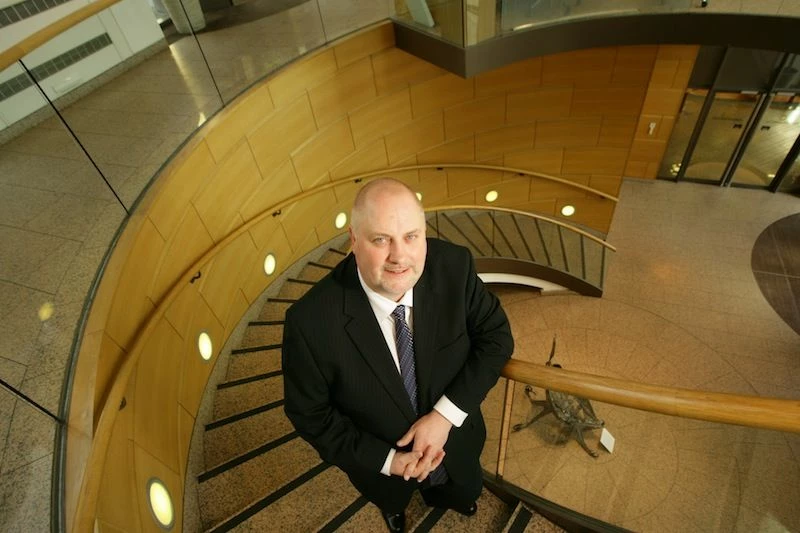
Partner Article
Get used to the new norm
Andrew Harvey, national chairman, The Chartered Institute of Marketing, looks at the continued marketing investment from businesses.
It’s encouraging to see that small businesses are continuing to press forward with marketing investment and jobs – so critical for fuelling both business growth, and the economy as a whole. But it’s clear that most businesses are having to adapt to prolonged periods of limited demand and reduced investment, and if they don’t learn to adapt to the new conditions, then they will not survive.
That’s the message coming from the latest Marketing Confidence Monitor, run by The Chartered Institute of Marketing (CIM) and supported by Deloitte, showing businesses are more positive now than three months ago when we first launched the Monitor. This is in spite of some commentators concerns over consumer spending. Indeed just over half of those responding anticipate a decline in consumer confidence in the next three months.
Such optimism may be related to the February Sales Monitor of the British Retail Association which has recorded the strongest sales growth for three years, and initiatives such as the opening of the new Trinity Shopping Centre in Leeds which was almost fully let at the time of opening.
It has long been known that those companies, consumer or business to business, who continue marketing and advertising investment throughout a recession, are the first to come out of recession and get on to a strong growth projectory.
We have long advocated that marketing plays a crucial role in driving growth and performance, and that marketers are uniquely positioned between the business and the customer. They understand how consumer confidence and business sentiment interact, our study shows that times are clearly still very tough.
Of the 1300 marketing professionals across the UK who were questioned for the Monitor, not only about their own company’s prospects, but on their views on the wider economic situation, job security, pay prospects and budget forecasts, around 500, or 38%, were more confident in their businesses’ ability to meet its financial and growth targets this year compared to last year.
But this upbeat assessment is allied with a widespread acceptance, 86%, of overall limited growth and static investment.
The optimism I mentioned earlier comes with a level of caution, however, with the vast majority of businesses adopting lower-risk strategies for 2013, with 75% of marketing departments targeting organic growth within their current customer base as a top priority, and less than half focusing on new market entry or development.
As with our last Confidence Monitor at the end of 2012, SMEs are in a more optimistic mood than their larger counterparts, with more than 40% confident of meeting business targets, career prospects, job security and access to investment. The professional and business services sector not surprisingly are the most optimistic.
Nor is it surprising that 21% of businesses plan to strengthen their digital marketing insight.
There is a clear paradox here between the growing optimism around business performance and the shift towards lower-risk and more tactical marketing strategies.
There will always be a need to balance delivery this year with long-term growth. But companies must guard against marketers’ current confidence in their ability to measure short-term response-driven marketing which may be at the cost of less tangible long-term brand building. There may be a risk that the pendulum has swung too far in favour of these tactical activities and that strategic investment in brands and innovation is being placed on hold as too difficult to justify.
This was posted in Bdaily's Members' News section by Chartered Institute of Marketing .
Enjoy the read? Get Bdaily delivered.
Sign up to receive our popular morning National email for free.








 Raising the bar to boost North East growth
Raising the bar to boost North East growth
 Navigating the messy middle of business growth
Navigating the messy middle of business growth
 We must make it easier to hire young people
We must make it easier to hire young people
 Why community-based care is key to NHS' future
Why community-based care is key to NHS' future
 Culture, confidence and creativity in the North East
Culture, confidence and creativity in the North East
 Putting in the groundwork to boost skills
Putting in the groundwork to boost skills
 £100,000 milestone drives forward STEM work
£100,000 milestone drives forward STEM work
 Restoring confidence for the economic road ahead
Restoring confidence for the economic road ahead
 Ready to scale? Buy-and-build offers opportunity
Ready to scale? Buy-and-build offers opportunity
 When will our regional economy grow?
When will our regional economy grow?
 Creating a thriving North East construction sector
Creating a thriving North East construction sector
 Why investors are still backing the North East
Why investors are still backing the North East